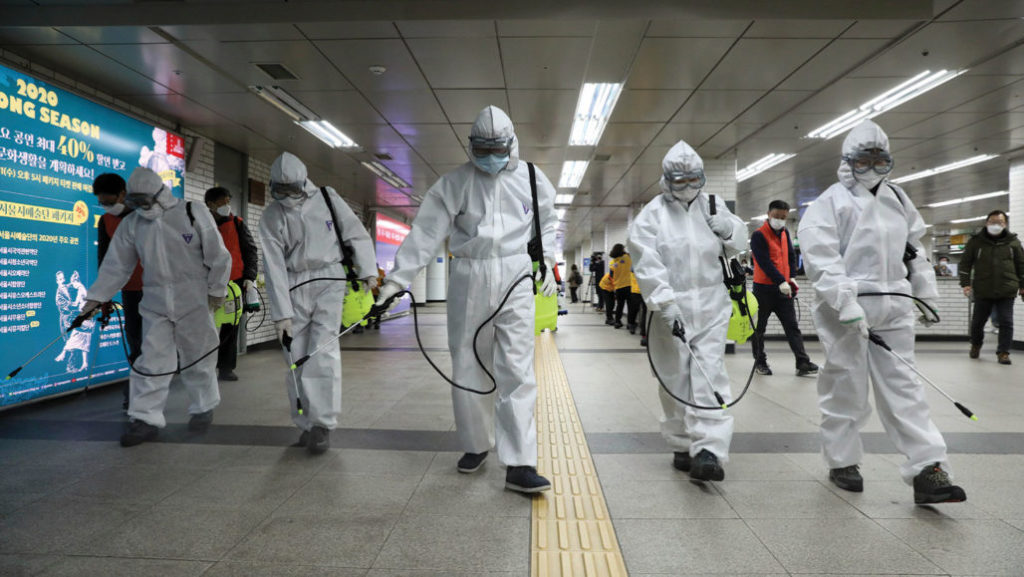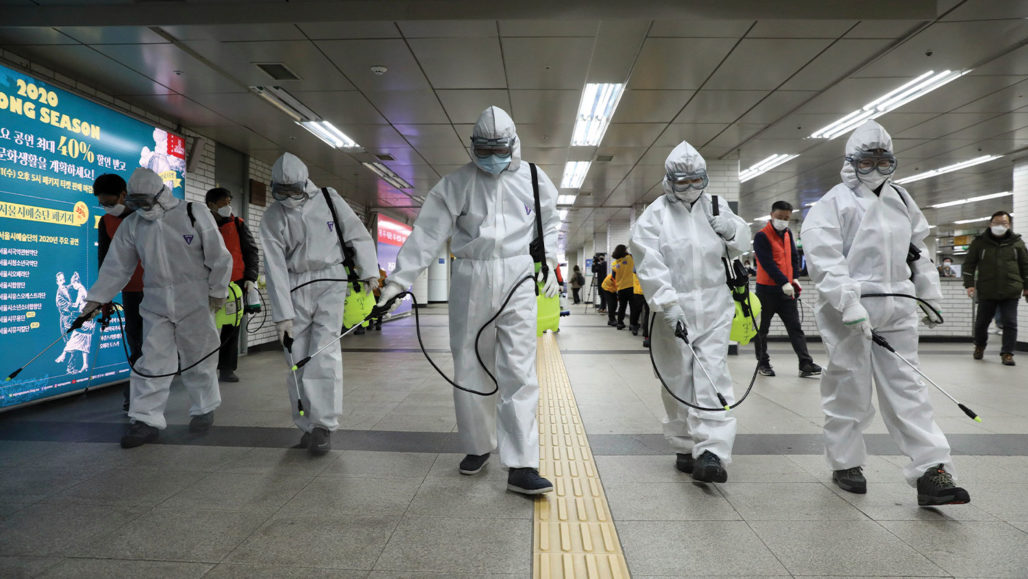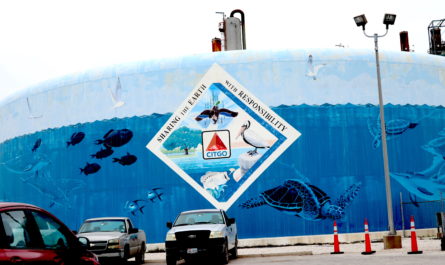
Virus hunting and cleaning crew in South Korea. (Photo/Associated Press)
One of the really creative and effective men I’ve known in my life is J. Carl Ganter. A native of Traverse City and a skilled photographer, journalist, and filmmaker who trained at Northwestern, Carl and I have done a few very cool things together. We partnered on New York Times assignments in the 1990s. He and his wife, Eileen Ganter, built MLUI.org, the first Web site for the Michigan Land Use Institute that went live in 1997.
Carl and Eileen founded Circle of Blue, which dispatched me overseas to report and write groundbreaking articles on dimensions of water supply, energy use, agricultural production and climate change that no other news group covered. Carl and I traveled together for projects in Australia, China, India, Peru, Qatar, the UAE, and around the United States.
So I know Carl pretty well. And among Carl’s many strengths is his genius for creatively tying information and the public good to design and outreach. I call his periodic storms of hyper creativity “extravaGanters.”
A few weeks ago Carl asked me to participate in his latest project, Covid Compass. It is a nascent collaboration with Saudi scientists and American big data specialists to mine open science data bases around the world for new and helpful ways to evaluate the COVID-19 pandemic. Today, we posted the first findings of the project.
Our Saudi researchers applied algorithms to data they collected from three continents and concluded that social distancing measures are absolutely essential to beating this virus. They found that the lives of 7.9 million people worldwide were spared by the confinement restrictions. In the U.S. 65,000 lives were spared. Without the measures installed by governors, including or own in Michigan who is under attack by the president, 100,000 Americans would be dead from COVID-19 infection. That’s three times the number that have died at this point.
KAUST researchers also found that over the last month social distance orders dramatically reduced the stress on hospitals in five American states where accurate data were available – California, Missouri, Ohio, Pennsylvania, and Washington. With the intervention measures in place, starting with Washington Gov. Jay Inslee’s order on March 11, the five states needed 21,576 hospital beds to treat COVID-19 patients. If those states had refrained from issuing social distancing orders, the number of hospital beds needed to meet demand would have totaled over 241,000.
These findings are essential as the great challenge of reviving commerce while keeping people safe unfolds here and overseas. We’ll be posting more relevant details as we go along. See more here.



